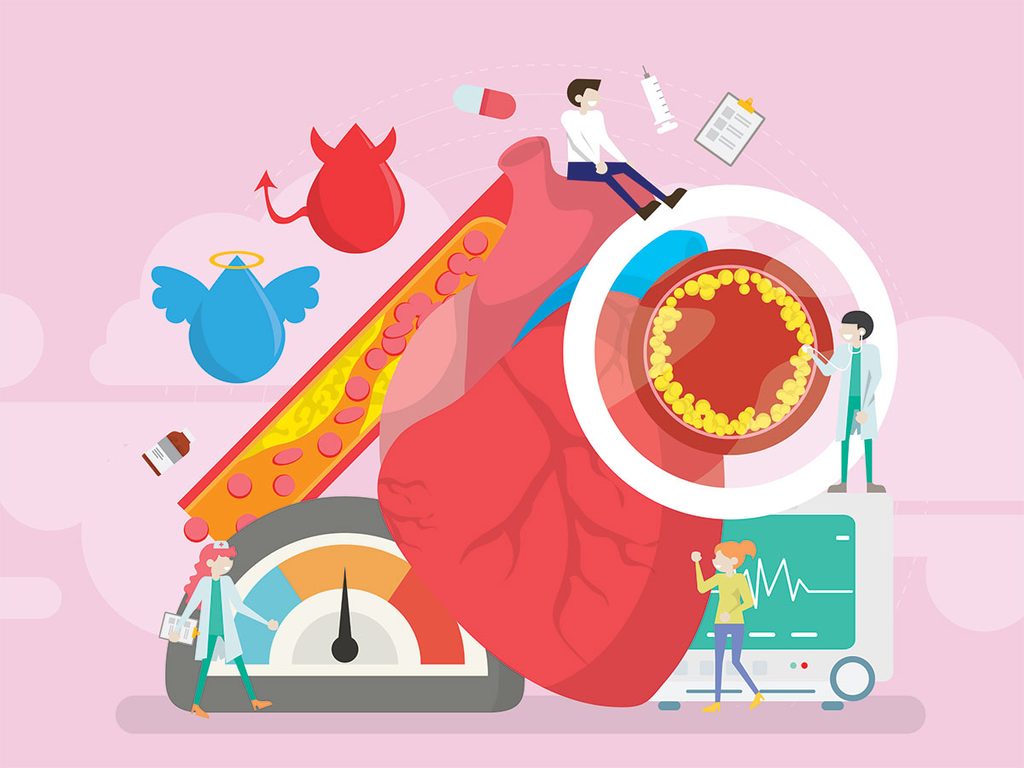What You Need to Know About Low Blood Pressure

Is your blood pressure too low? Here's what you need to know about hypotension.
Hypotension (low blood pressure) is the lesser-known cousin of one of Canada’s major public health issues, hypertension (high blood pressure). Hypotension is less common than hypertension, and usually merits concern only when symptoms interfere with day-to-day life. If you have hypotension, it’s not bad news, per se, but educating yourself about the condition is key. Protect your health by knowing when to consult a doctor for treatment. Here’s what you need to know.
What is low blood pressure?
Blood pressure measures how forcefully blood moves through our arteries. Systolic pressure measures blood pressure when the heart beats, and diastolic measures pressure while the heart is between beats, at rest and therefore filling with blood.
Low blood pressure is defined as a systolic and diastolic pressure reading of 90/60 (or “90 over 60”), or less. By contrast, “normal” blood pressure is around 120/80. (Learn more about what the numbers mean when you get your blood pressure checked.)
In healthy adults, low blood pressure is generally not a concern. It’s actually very common among athletes and a sign of good cardiovascular efficiency, says Dr. Sonia Anand, Associate Professor of Cardiology at Hamilton, Ont.’s McMaster University, and director of the Vascular Medicine Clinic at Hamilton Health Sciences.
There are some situations, however, in which hypotension can be a concern.
When is hypotension a problem?
Regular hypotension is not an issue if you’re an adult in good health who does not experience any negative symptoms, says Dr. Anand. But if low blood pressure is unexpected and sudden (ie. as the result of an injury, blood loss, anaphylaxis or any other acute condition), or in any of the following instances, a doctor visit is essential:
You experience lightheadedness, dizziness, fainting or confusion.
Why you should see your doctor: “Symptoms like dizziness, lightheadedness or fainting spells are a concern because of the potential for harm should they occur while someone’s doing a critical task like driving a car, working with machinery or caring for a young child,” says Dr. Anand. Your doctor can check to ensure your low blood pressure isn’t a sign of any other conditions, and can also make suggestions for lifestyle changes that may lessen symptoms. Some suggestions may include, standing up more slowly after sitting, drinking more water, avoiding alcohol or caffeine, and wearing compression stockings. (Find out if crossing your legs can raise your blood pressure.)
You are a senior citizen.
Why you should see your doctor: Blood pressure regulation can decline with age, or other medication you’re on, so it’s important your doctor assess your overall health, diet and prescription medication regimen.
You are pregnant.
Why you should see your doctor: A drop in blood pressure is common during the first 24 weeks of pregnancy. As with symptomatic hypotension, the primary concern is the harm that could occur if you faint and/or fall, hurting yourself and possibly your baby, too. Discuss your symptoms with your doctor during prenatal checkups, if symptoms worsen.
You are on certain types of prescription medication.
Why you should see your doctor: Certain drugs are associated with postural hypotension. They include medications used to treat high blood pressure, Parkinson’s disease, as well as Viagra and tricylic antidepressants. A doctor can reassess your drug regimen or suggest other changes that may reduce the side effects of your hypotension.
Living with chronic hypotension
Bottom line: If low blood pressure hasn’t caused you any negative symptoms, relax. “It’s for good reason that hypertension gets all the attention and public awareness efforts. It’s a major risk factor for heart attack and strokes. Hypotension with symptoms is a concern, but without symptoms, anyone with a blood pressure of 90/60 is fine to carry on as they’ve been doing,” says Dr. Anand.
The best way to maintain your overall health is to eat a healthy diet, get regular exercise, and avoid smoking cigarettes and over-indulgence in alcohol. Also, stay hydrated, as it maintains healthy blood pressure.
Although proper hydration is important for anyone, “people prone to low blood pressure with symptoms, should be especially aware of their fluid intake,” says Dr. Anand. “For example, during hot sunny weather, or when playing sports, it’s important to maintain a normal fluid balance, by drinking lots of water, or a drink with sodium, like a bottled sports drink.”
Next, learn about how beet juice can lower your blood pressure.




